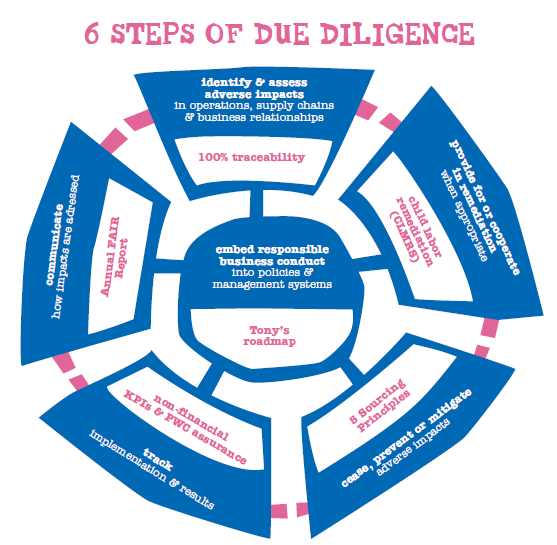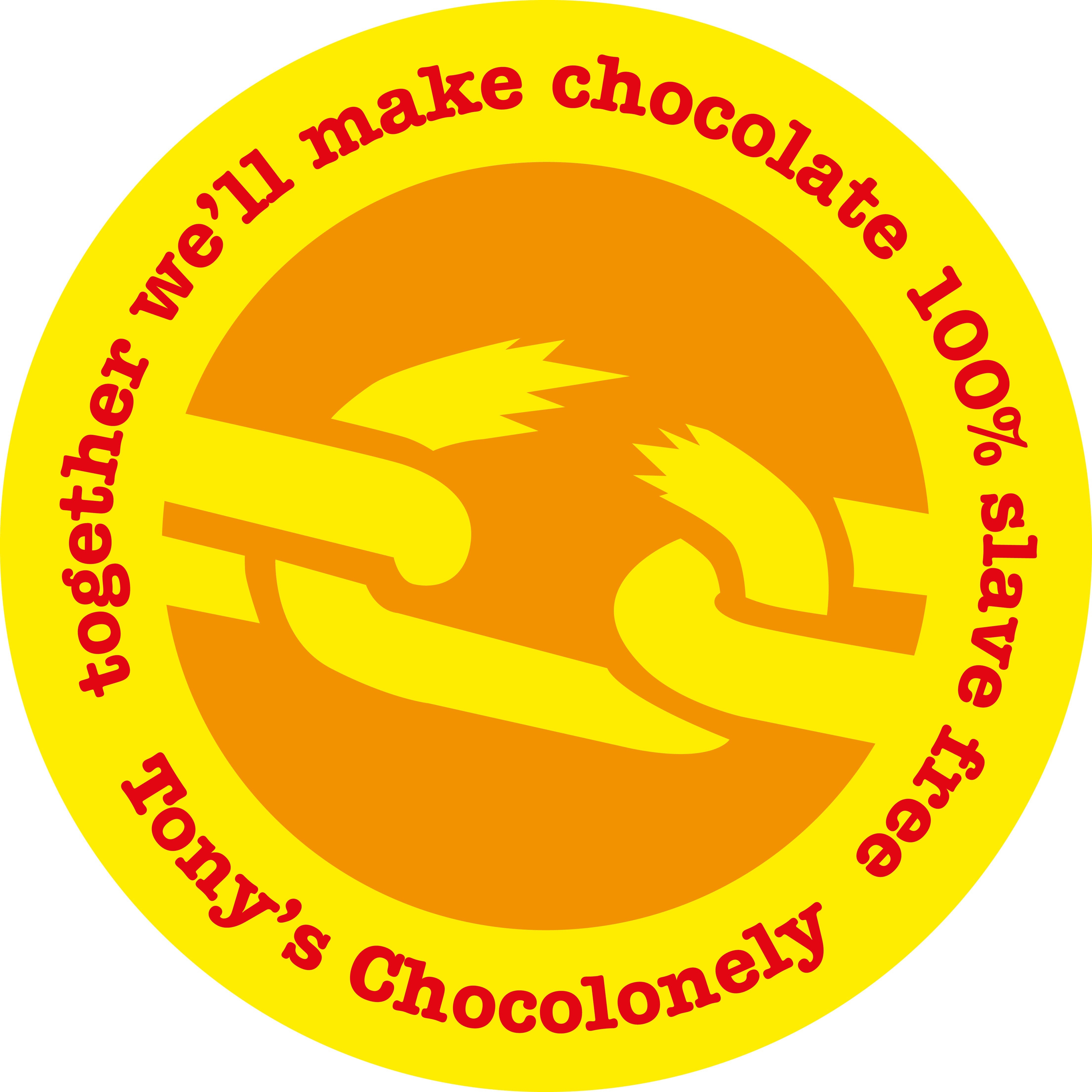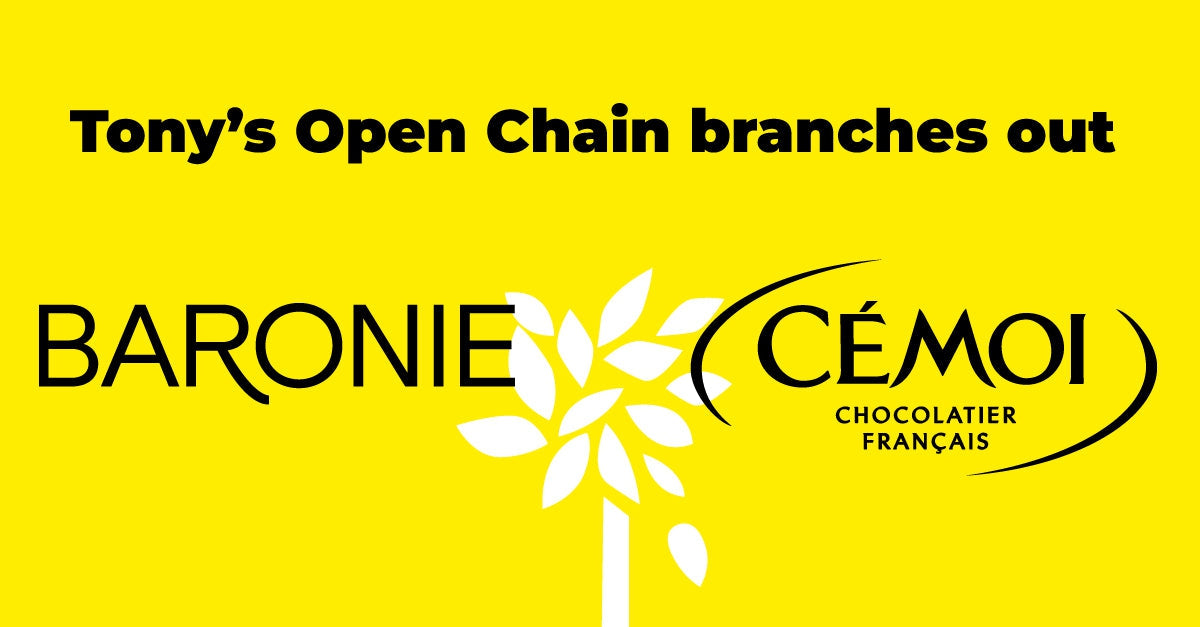Tony’s Chocolonely proves sourcing model substantially reduces child labor in cocoa and calls on others to step up
Tony’s Chocolonely publishes their 10th annual FAIR report today.

Amsterdam | January 9, 2023 – Tony’s Chocolonely, the global impact company on a mission to make 100% slave free the norm in chocolate publishes their 10th annual FAIR report today. The company's transparent finance and impact update highlights their sourcing model’s effectiveness and stresses the need for more industry allies to copy their model in order to change the norm in cocoa.
This year’s annual FAIR report details many highlights including 21% business growth, three new Mission Allies and a total investment of 6.2% of their revenue into impact – which has positively impacted close to 15,000 farmers.
Tony’s sourcing model drives endemic child labor down from >50% to <5%
In contrast to the alarming industry-wide average of 46.5%, the percentage of children in child labor at the long-term cocoa-growing communities that Tony’s works with is 4.4%. The industry average is in line with the newer partners Tony’s has onboarded, at 52.8%. This shows that Tony’s long-term partner co-ops benefit from implementing the Child Labor Monitoring and Remediation System (CLMRS) – and that the company’s sourcing model helps reduce child labor.
To address the root cause of child labor – poverty – Tony’s and their Mission Allies pay the Living Income Reference Price (LIRP), which goes beyond the farmgate price by 77% in Ghana and 82% in Côte d’Ivoire. The model has recently been referenced as a best practice in the 2022 Cocoa Barometer.
Collaboration is key to changing the norm in cocoa
Tony’s is one of the few companies in the industry that is transparent about the percentage of child labor and farmers earning a living income in their supply chain. The company has made great strides on this to date, with the report stating that 37.6% of Tony’s long-term partner farmers now earn a living income. The ambition to get this number to 100% does provide challenges for the company, seeing as Tony's doesn’t purchase all beans from partner farmers – meaning the beans are also sold at much lower prices to other chocolate companies.
Paul Schoenmakers, Tony’s Head of Impact, explains: “Progress takes time. To tackle two of the most serious issues in cocoa – child labor and poverty – we need to enable farmers to earn a living income. To do this, farmers need to be able to sell more of their beans at the Living Income Reference Price. This can be achieved via further growth of Tony’s Chocolonely, so that we can buy more of these beans. That’s why we also need more industry players to join Tony's Open Chain and pay the higher price.”
The latest and most well-known Mission Ally to join Tony's Open Chain is Ben & Jerry’s - who were already paying a higher price for cocoa and will now also be sourcing traceable cocoa via the initiative. The growth of Tony’s Open Chain last year demonstrates that Tony’s sourcing model is replicable and scalable for any manufacturer – leaving no excuse for other players to not follow suit. Retailers can also contribute by stocking their shelves with Tony’s Open Chain products and Choco Fans can help by voting with their wallets.
21% growth for Tony’s, reaching €133.1 million in sales
Proving that impact and commercial success can go together, the company reported an overall year-on-year growth of 21% to reach €133.1 million in revenue – while investing €8.2 million (6.2% of revenue) in impact. Meanwhile, Tony’s gross margin grew from 46.2% to 50.2% - a company record.
Despite its strong performance, the company recognizes that some of their financial ambitions were not met. The company faced unpredictable challenges, such as sky-high inflation and a 2-month production shutdown at one of their partners.
Tony's foresees a net revenue growth of mid to high twenties. Most of its markets are in a growth phase and require investments to keep boosting revenues and impact. Tony’s predicts a break-even net margin for next year but acknowledges that market conditions remain highly uncertain.
Read the full report here.
More financial highlights from the report:
The company achieved strong growth in its key markets: Benelux, DAN, UKI, US. The US was Tony’s fastest growing market in absolute terms – they delivered €8.1 million in net revenue growth and landed at €22.2 million in terms of performance. Home market the Benelux & Beyond grew by €4.5 million to €71.2 million. The UK and Ireland increased revenues by 19%, from €20.3 million to €24.2 million. The DAN market almost doubled their revenues from €7.6 million to €13.3 million. Tony's invested in their own factory in Belgium, allowing the company to increase capacity in line with the growth of its business.
NOTES TO EDITORS
About Tony’s Chocolonely
Tony’s Chocolonely is an impact company that makes chocolate. Since 2005, Tony’s Chocolonely has dedicated its efforts to raising awareness of and eliminating inequality in the chocolate industry. They aim to lead by example, building direct, long-term relationships with cocoa farmers in Ghana and Côte d’Ivoire, paying them a higher price and working together to solve the underlying causes of modern slavery and child labor. They want to inspire the industry as a whole to make 100% slave free the norm in chocolate.
The brand has grown to become one of the market leaders in the Netherlands and its bars are now available almost worldwide. Tony's Chocolonely is a B-Corp and Fairtrade-certified.
About Tony’s Open Chain
Tony’s Open Chain is an industry initiative launched by Tony’s Chocolonely in 2019. Companies are invited to join Tony's mission to end modern slavery and child labor in the cocoa supply chain by becoming Mission Allies. In doing so, they commit to adopting Tony's 5 Sourcing Principles and the proven CLMRS.
Tony’s 5 Sourcing principles require Mission Allies to (1) transition to fully traceable cocoa beans, (2) pay an additional premium for their cocoa beans to enable farmers to earn a living income, (3) promote strong co-operatives to professionalise and make the work of cocoa farming safe and sustainable, (4) engage in long-term commitments giving the farmers income security, (5) coach farmers to improve their cocoa productivity and quality and improve their agricultural knowledge on relevant crops.
For information:
press@tonyschocolonely.com
misschien ook interessant
-

persberichten
20 November 2023
Tony’s Chocolonely calls for ambitious human rights and environmental due diligence legislation.
-

persberichten
16 June 2023
Tony’s Chocolonely secures additional funding
-

persberichten
20 March 2023
IDH and Tony’s Open Chain collaborate to Increase Farmers’ Incomes
-

persberichten
02 February 2023
Tony's Chocolonely announces partnership between Tony's Open Chain and Baronie & Cémoi as second chocolate processor




